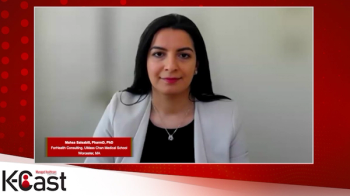
MetaMe Health Agrees to License Gut-Directed Hypnotherapy Protocol for Functional Dyspepsia
A small (23 patients) pilot study showed improvements symptoms and quality of life.
The prescription digital therapeutics (PDT) maker MetaMe Health says it has reached a deal to license a new gut-directed hypnotherapy protocol designed to treat functional dyspepsia. The deal could open up a sizable market for the company, whose development pipeline is focused on gastrointestinal indications.
Functional dyspepsia is a chronic upper gastrointestinal tract condition characterized by stomach aches, heartburn, nausea, and a feeling of fullness or bloating even during or after meals. It is diagnosed when there is no other obvious cause of the patient’s symptoms. Though the impaired-digestion condition is believed to affect as many as 1 in 10 adults, MetaMe Health said treating functional dyspepsia can be a challenge due to a lack of reliably effective therapies.
The new protocol licensed by MetaMe Health was developed by Sarah Kinsinger, Ph.D., of Loyola Medicine, in Chicago, and Olafur Palsson, Psy.D., of the University of North Carolina. It was studied in a 2021 pilot trial, the company said, and led to significant improvement for patients.
“With a product pipeline that includes digital hypnotherapy PDTs for heartburn and ulcerative colitis, and with Regulora for IBS pain already FDA-cleared and commercialized, developing an FD (functional dyspepsia) intervention fits perfectly with our focus on gastrointestinal health and our expertise in bringing PDTs from concept to market,” he said,
The pilot trial was a single-center trial in which 23 patients with functional dyspepsia completed seven biweekly hypnosis sessions over the course of 3 months. The protocol had a high rate of participation, with 96% of enrollees completing the program. An intention-to-treat analysis found patients had improvements both of their symptoms and of their quality of life, the company said.
“The results of this first study, showing large reduction on average in overall FD symptoms, indicate that the intervention has high potential as adjunctive therapy for functional dyspepsia and warrants further investigation in a randomized controlled trial,” Palsson said, in the press release.
The next step for the company, and the protocol, is to conduct a large pivotal trial that can serve as evidence to support FDA clearance of the product. Rudolphi said Kinsinger and Palsson will work with the company on the trial.
Even as it builds the scientific case for its pipeline of hypnosis-based PDTs for gastrointestinal disorders, the company also faces the challenge of getting clinicians to embrace the therapies. That’s because, unlike the majority of digital health products flooding smartphone application stores, MetaMe Health’s hypnotherapy products require a prescription.
Kinsinger said she is optimistic that physicians will increasingly embrace tools like gut-directed hypnotherapy.
“GDH (gut-directed hypnotherapy) is gaining popularity among patients and providers and this licensing arrangement and collaboration with metaMe Health is an outstanding opportunity to enable this convenient self-administered treatment to become widely available to patients with functional dyspepsia,” she said, in the press release. She added that patients particularly liked that they could implement the automated sessions by themselves.
Newsletter
Get the latest industry news, event updates, and more from Managed healthcare Executive.




















